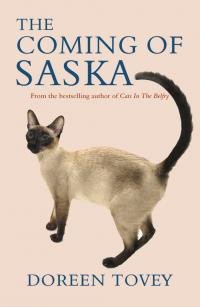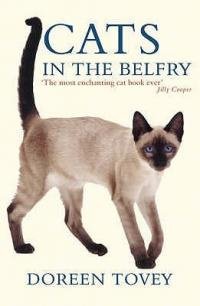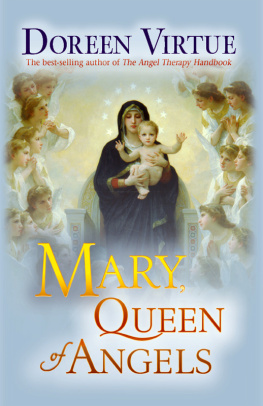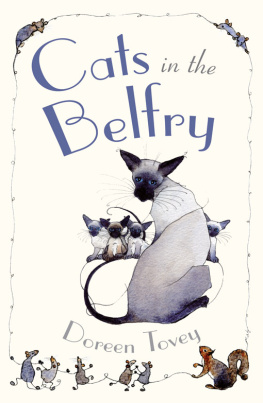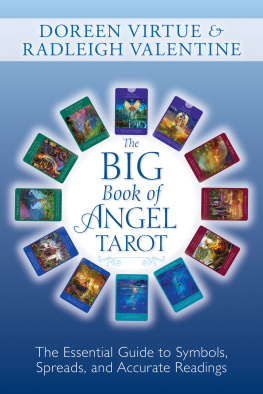Doreen Tovey - Donkey Work
Here you can read online Doreen Tovey - Donkey Work full text of the book (entire story) in english for free. Download pdf and epub, get meaning, cover and reviews about this ebook. year: 2013, publisher: Summersdale Publishers Ltd, genre: History. Description of the work, (preface) as well as reviews are available. Best literature library LitArk.com created for fans of good reading and offers a wide selection of genres:
Romance novel
Science fiction
Adventure
Detective
Science
History
Home and family
Prose
Art
Politics
Computer
Non-fiction
Religion
Business
Children
Humor
Choose a favorite category and find really read worthwhile books. Enjoy immersion in the world of imagination, feel the emotions of the characters or learn something new for yourself, make an fascinating discovery.

- Book:Donkey Work
- Author:
- Publisher:Summersdale Publishers Ltd
- Genre:
- Year:2013
- Rating:4 / 5
- Favourites:Add to favourites
- Your mark:
- 80
- 1
- 2
- 3
- 4
- 5
Donkey Work: summary, description and annotation
We offer to read an annotation, description, summary or preface (depends on what the author of the book "Donkey Work" wrote himself). If you haven't found the necessary information about the book — write in the comments, we will try to find it.
Donkey Work — read online for free the complete book (whole text) full work
Below is the text of the book, divided by pages. System saving the place of the last page read, allows you to conveniently read the book "Donkey Work" online for free, without having to search again every time where you left off. Put a bookmark, and you can go to the page where you finished reading at any time.
Font size:
Interval:
Bookmark:

Praise for Cats in the Belfry
'The most enchanting cat book ever'
JILLY COOPER
'If you read Cats in the Belfry the first time round, be prepared to be enchanted all over again. If you haven't, then expect to laugh out loud, shed a few tears and be totally captivated by Doreen's stories of her playful and often naughty Siamese cats'
YOUR CAT MAGAZINE
A funny and poignant reflection of life with a Siamese, that is full of cheer'
THE GOOD BOOK GUIDE
Praise for Cats in May
'If you loved Doreen Tovey's Cats in the Belfry you won't want to miss the sequel, Cats in May... This witty and stylish tale will have animal lovers giggling to the very last page'
YOUR CAT MAGAZINE
Praise for The New Boy
'Delightful stories of Tovey's irrepressible Siamese cats'
PUBLISHING NEWS
DONKEY WORK
This edition published in 2009 by Summersdale Publishers Ltd.
First published by Elek Books Ltd in 1962
Copyright Doreen Tovey 1962
All rights reserved.
No part of this book may be reproduced by any means, nor transmitted, nor translated into a machine language, without the written permission of the publishers.
The right of Doreen Tovey to be identified as the author of this work has been asserted in accordance with sections 77 and 78 of the Copyright, Designs and Patents Act 1988.
Condition of Sale
This book is sold subject to the condition that it shall not, by way of trade or otherwise, be lent, re-sold, hired out or otherwise circulated in any form of binding or cover other than that in which it is published and without a similar condition including this condition being imposed on the subsequent publisher.
Summersdale Publishers Ltd
46 West Street
Chichester
West Sussex
PO19 1RP
UK
www.summersdale.com
eISBN: 978-0-85765-873-9
Also by Doreen Tovey:
Cats in the Belfry
Cats in May
The New Boy
Double Trouble
Life with Grandma
Raining Cats and Donkeys
Making the Horse Laugh
The Coming of Saska
A Comfort of Cats
Roses Round the Door
Waiting in the Wings
Contents
1 Nettled
2 Sleuthing on the Sands
3 She Doesn't Care for Carrots
4 Annabel and Friends
5 Miss Wellington is Worried
6 The Donkey Owners
7 As Sure as a Siamese Cat
8 The Trouble with Tortoises
9 The Sad Tale of Micawber
10 Time to Take the Pledge
11 Two's Company
12 The Elopement
13 Working up for Winter
14 A Quiet Country Christmas
15 To Be or Not to Be
Postscript

ONE
Nettled
People staying in the district and hearing that we keep Siamese often stop at the cottage and ask to see them.
'Quiet spot you have here,' they comment, gazing idly round at the garden, the valley and the rolling West Country hills. That, say the more lynx-eyed of them a second or two later, spotting a pair of Seal Point ears protruding bulrush-fashion from a clump of grass on the far side of the lawn, must, from what they've heard of him, be Solomon. It is indeed. Solomon in ambush. In his favourite hide behind the air-vent of the septic tank, and a more embarrassing introduction than to say 'This is Solomon' and then, when they enthuse about how beautiful he is and what is that interesting stone he's sitting behind, is it a Roman milestone, having to confess that that is the air-vent to our septic tank it is difficult to imagine.
Flustered some of them muttering doggedly that it looked like a Roman milestone anyway they gaze around for inspiration. It is not long in coming. It arrives in the form of a pint-sized Blue Point queen within seconds of hearing people talking to Solomon. Belting down the path at top speed, dwindling to a coy dawdle when she nears the party once, as the result of a springtime mousing expedition in the ditch, she appeared with her eyebrows starred with cow parsley flowers like the Primavera; we have often wondered how accidental that entry was... That, they say, greeting her arrival with delight, must be Sheba.
It is too, and a happy scene ensues with Sheba being cuddled, Solomon determinedly dodging his would-be cuddlers round the air-vent and everybody saying how they just love Siamese. Until sooner or later somebody spots Charles, my husband, in the vegetable garden or up on the hillside and asks, in a voice of dumbfounded amazement, 'What on earth's he doing with a donkey?'
She is our donkey, her name is Annabel, and we bought her because we had nettles. Two acres of them, growing waist-high round Charles' fruit trees with the village sages surveying them as gloomily as if they were mandrakes and saying 'twas a pity to ruin good trees like that, Charles unable to get at them because he didn't have time, and Sidney the handyman refusing to touch them because he said they was just the place for snakes. Sidney had a thing about snakes. He even advised us not to eat the watercress from the stream up the valley because, he said, it had little black snakes in it and his father knew a man what had dropped like a log after eating some for his tea one night. It was a moment of sombre triumph for Sidney when we asked how he knew it was the watercress. When they cut the poor bloke open, he said dramatically, there inside 'un was a little black snake...
Nothing short of a suit of armour would have got Sidney into the nettles. Charles toyed with the idea of a flame-thrower and discarded it because it might, he said, be difficult to keep it clear of the trees. (It might indeed; the last time Charles had used the blow-lamp he'd set fire to the garage door.) There was bracken growing between the nettles, too, and long ropes of bramble which, when Charles or I did venture up there with reaping hooks for a quick five-minutes' hack, caught us suddenly round the ankles and sent us leaping sky-high with thoughts of Sidney's snakes. All in all we were ripe as a couple of greengages for the day when, opening the Sunday newspapers, we found an article about donkeys.
Why more people didn't keep donkeys he couldn't imagine, enthused the writer. Neither could we when we read how in the old days farmers liked to run them with their cows (donkeys, it seemed, not only acted as herd leaders but cleared fields like magic of weeds which would spoil the milk); how they were no trouble to keep and cost nothing at all to feed if you had a piece of rough land particularly, said the article, they liked nettles; how intelligent they were, and patient; and how, if you encouraged them and made a fuss of them, they would respond to you like a dog.
We looked at one another entranced. A little donkey eating down the nettles like a suction-pump. A little donkey cavorting between the apple trees, once it had cleared a cavorting space, like a character from Walt Disney. A little donkey we smiled mistily at the thought who would respond to us like a dog.
Charles and I liked dogs. We didn't have one because, whereas if we were away during the day we could leave a couple of Siamese cats companionably ripping up the stair-carpet or sleeping on the eiderdown, we couldn't leave a dog. Earthboxes we might have, but as Charles said, we weren't importing trees. We also didn't have one because, even if we had been around all day, the cats wouldn't have stood for it. A small black poodle called Prune, who lived down the lane and came flat as an ink-blot on his stomach under our gate in a way that had them spellbound with admiration, was permitted into the yard for biscuits. So was a corgi from up the hill, on account of his short legs at which they gazed with such interest that he invariably ended by tucking his tail self-consciously between them and scuttling crestfallenly away. But dogs in general No. Certainly not in the house. Not unless we wanted fights and ambushes and cats leaving home in all directions, and we'd had enough of that the time we tried to adopt another Siamese kitten.
Next pageFont size:
Interval:
Bookmark:
Similar books «Donkey Work»
Look at similar books to Donkey Work. We have selected literature similar in name and meaning in the hope of providing readers with more options to find new, interesting, not yet read works.
Discussion, reviews of the book Donkey Work and just readers' own opinions. Leave your comments, write what you think about the work, its meaning or the main characters. Specify what exactly you liked and what you didn't like, and why you think so.

